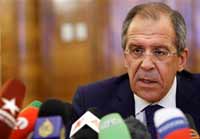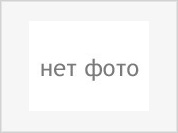NATO must not teach Russia on how to behave towards Georgia
NATO hit the USA in the face. Its allies said that they were not going to scale down their cooperation with Moscow. The statement showed that the USA was no longer NATO’s master and that Washington was not the city where all fundamental decisions were made.

The US administration hoped that the alliance would back its condemnation of Russia’s “invasion of Georgia.” However, Great Britain, a staunch ally of the United States, was the first country of NATO which said that the alliance should not isolate Russia. Condoleezza Rice’s counterpart in Britain, David Miliband, offered to expand the bilateral cooperation with Russia. It was later revealed that Britain did not support the suggestion to exclude Russia from the Group of Eight.
Natalia Boyarskikh, an expert for Russia’s relations with NATO, believes that there was nothing surprising in the fact that NATO did not support USA’s anti-Russian stance.
“The USA continues to wage the informational war against Russia. Americans are now acting indirectly, through Georgia. They have no true allies left except for several countries of East Europe, which they support financially,” the expert said.
It is an open secret that politics can be very dirty, just like prostitution. However, it is impossible to bribe everyone. German Chancellor Angela Merkel does not personify the whole of Germany with her statements. She mostly expresses the interests of German rightist forces. German Foreign Minister Frank-Walter Steinmeier openly supports Russia and condemns Georgia.
The Czech Republic, Greece, Slovakia and France expressed their support to Russia too. In this situation, Russia needs to explain to European NATO members that Georgia’s membership in the alliance would be highly inadequate.
Yesterday’s emergency meeting of NATO ministers in Brussels marked the most serious political failure of the US administration in recent years.
NATO Secretary General Jaap de Hoop Scheffer said that NATO was not going to close doors for its dialogue with Russia.
“No cooperative programs have yet been axed but one can presume ... this issue will have to be taken into view,” the official said.
"There can be no business as usual [with Russia] under present circumstances," Scheffer said at a news conference after an emergency meeting of NATO foreign ministers in Belgium. "The future of our relations will depend on the concrete actions Russia will take to honor the words of President Medvedev to abide by the six-point peace plan, which is not happening at the moment,” Scheffer said.
Russia's immediate response was dismissive.
"The mountain gave birth to a mouse," said Dmitry Rogozin, Moscow's ambassador to NATO, The Associated Press reported.
Russian Foreign Minister Sergei Lavrov called NATO's response to the crisis biased and accused the alliance of allowing Georgian President Mikhail Saakashvili to dictate its policies.
"It's Mr. Saakashvili telling NATO countries what they should do, so he can meet his ambitions," Lavrov said in Moscow. "NATO is trying tomake a victim of an aggressor and whitewash a criminal regime ... and is taking a path to the rearmament of the current leaders in Georgia."
Lavrov stated that the alliance had virtually taken Georgian President Saakashvili under its wing. The minister stated that NATO’s statement on South Ossetia was biased.
“It says nothing about how it all began and what actually happened, which countries armed Georgia and who encouraged Georgia not to sign the agreement excluding the use of force in the region,” the minister said.
“NATO adopts a course to rearm the current leaders of Georgia. It is obvious that the Georgian administration purchases weapons to continue its attempts to solve the problem of Georgia’s territorial integrity,” Lavrov said.
“The line of making Georgia a member of NATO is not based on Tbilisi’s conformity to NATO’s standards. It is based on the aspiration, which I can only refer to as anti-Russian, and which is aimed at supporting the aggressive regime,” Lavrov said.
The minister stressed out that Moscow would draw its conclusions from the pro-Georgian position of NATO.
“There will be consequences, of course. It will hardly be possible to run business as usual - we said that a week ago. I think we will draw adequate conclusions,” the Russian diplomat said.
“The Russia-NATO Council was not established to teach Russia on how to behave towards Georgia, but to ensure security in Europe and in the Euro-Atlantic region. We still believe that these goals are actual,” Lavrov said.
In the meantime, Russia blocked the draft Security Council resolution on Georgia. The document contains at least two fundamental aspects, which Russia cannot agree upon. First off, the resolution urges for an immediate withdrawal of Russian troops from Georgia. Secondly, the document declares a need to observe the territorial integrity of Georgia within the borders recognized by the international community. Neither statement makes a part of the peace plan.
The Russian Foreign Affairs Ministry also asked foreign leaders not to bite on granite. Foreign Minister Sergei Lavrov stated that the pull out of Russian troops would depend on Georgia’s actions, because it also signed the peace agreement with Russia. If Tbilisi proceeds adequately, the Russian troops will be withdrawn during two or three days.
President Dmitry Medvedev stated that the troops would be pulled out from Georgia to South Ossetia and Russia by August 22. The president added that 500 Russian peacemakers would stay near South Ossetia’s borders.
Russia said that it would not participate in the Open Spirit 2008 international naval exercise in the Baltic Sea. In addition, Russia informed the USA of the impossibility to receive the U.S. warship in the Far East port of Petropavlovsk-Kamchatsky. The ship was due to pay a business visit to the Kamchatka Peninsula on September 5-9.
The exercise has been held annually since 1997 within the framework of NATO's Partnership for Peace program, with the aim of sweeping Baltic States' coastal areas for old WWI and WWII explosives, RIA Novosti says.
Subscribe to Pravda.Ru Telegram channel, Facebook, RSS!





